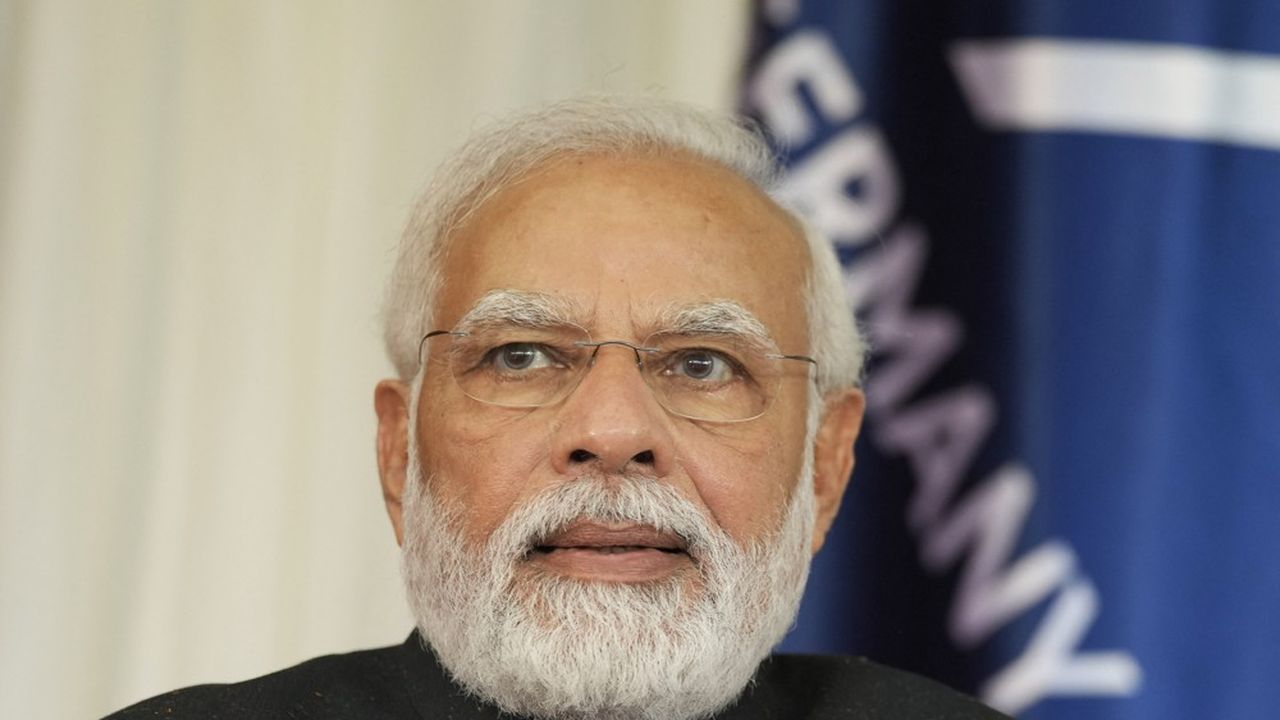India continues its balancing act. G7, meeting at the summit since Sunday , condemned this Tuesday in a press release the “illegal” invasion of Ukraine by Russia. The five developing countries (South Africa, Argentina, India, Indonesia and Senegal) invited to the event agreed to be cited in the final G7 communiqué, but not in the section devoted to Ukraine. A convoluted position that allows them to show their disapproval of the Kremlin’s actions, given the now undeniable war crimes, without having to condemn Russia outright…
A traditionally non-aligned nation, India has thus subtly adjusted its position since the start of the war in Ukraine, but without crossing the yellow line of wrongdoing from Russia. On March 25, New Delhi abstained like 34 other countries, including Senegal and South Africa, from voting for a UN General Assembly resolution demanding an immediate end to Russia’s hostilities towards Ukraine. India began contact again on April 7 in a vote that established Russia’s exclusion from the United Nations Human Rights Council.
Moreover, New Delhi has not yet taken the initiative to impose sanctions on the Kremlin. “We have never implemented any sanctions other than those decided by the United Nations”, argued Jawad Ashraf, India’s ambassador to France, on “Echos” in early May . And Narendra Modi, Prime Minister of India, until recently was content to lament the humanitarian and food crises caused by the conflict.
Don’t offend Russia’s allies
For New Delhi, the goal is twofold. It is a question, on the one hand, of appeasing the West and, on the other hand, of not offending Moscow. Because Russia was, until recently, its first arms supplier. The military equipment is mainly deployed along the Kashmir border, a disputed territory between Pakistan and China.
Russia also has the power, as a permanent member of the UN Security Council, to block any resolutions on the Kashmir region. It is also potentially useful for containing the growing influence of Chinese rivals. Hence, it is a valuable ally for India.
Indian doubles game
Since the beginning of the Russo-Ukrainian conflict, Westerners have criticized India for its ambiguity, to put it mildly, vis-à-vis Russia. Joe Biden was particularly critical of India’s “rather weak” position. By agreeing to participate in summits like the G7, India is taking a small step towards the Western powers, which it has courted in recent years to counter Chinese influence in the Indo-Pacific zone.
India, however, has both. Because for its part, Moscow wants to strengthen trade ties with New Delhi. During the BRICS summit on June 19, Vladimir Putin indicated that he wants to send more of his products to India and China to avoid Western sanctions. And India is already benefiting from this new trade situation. In particular, it buys oil at deep discounts from Russia. Before the Ukrainian invasion, only 1% of Russia’s oil exports went to India. As of May 2022, this number has increased to 18%.
Even if India’s purchase of Russian oil is not subject to US sanctions, the White House has asked New Delhi to choose the “good side of history”. “India’s foreign policy decisions are made in the national interest and we are guided by our thoughts, opinions and interests. Hence, there is no question of linking the Ukrainian situation to trade issues,” said India’s foreign minister.

“Twitter junkie. Hipster-friendly bacon expert. Beer ninja. Reader. Communicator. Explorer. Passionate alcohol geek.”







